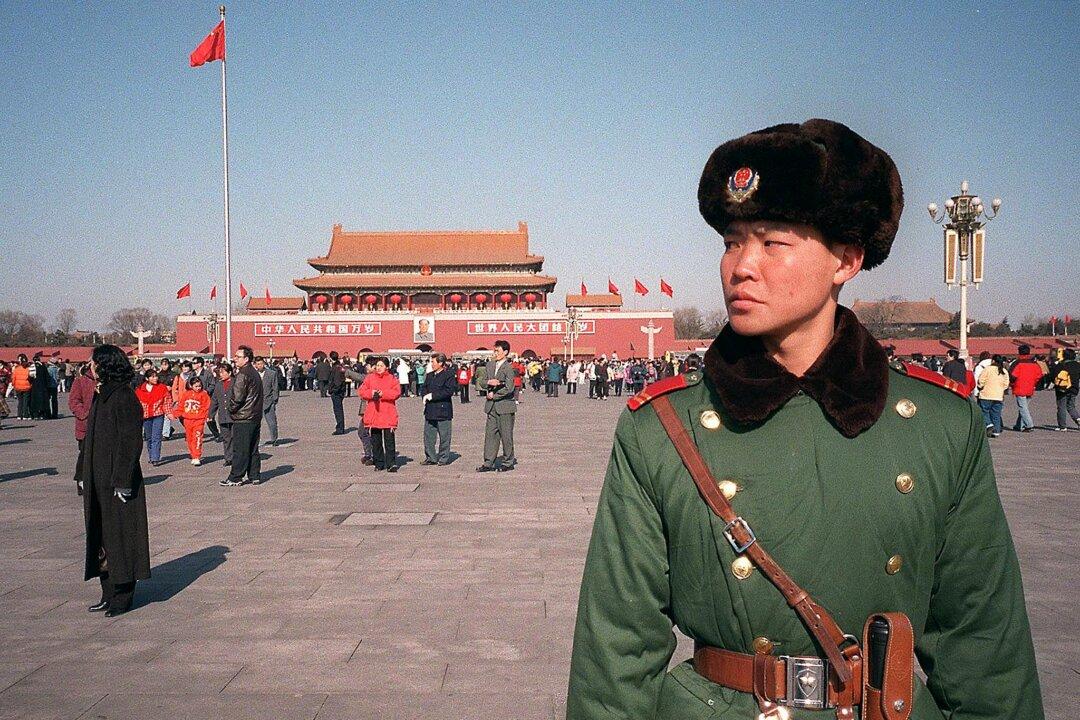Speakers including Rep. Darin LaHood (R-Ill.), a member of the House Permanent Select Committee on Intelligence, discussed potential costs and benefits of decoupling from China at a June 14 American Enterprise Institute (AEI) forum dedicated to countering “Chinese subversion.”
“China has a plan to replace us—but we are tied to them economically,” said LaHood, who suggested that the countries were moving toward a “Cold War mentality.”
“I’m not generally a fan of tariffs, but the tariffs that were implemented by President Trump got the attention of the Chinese,” LaHood said when asked about China’s continued financial dealings with Russia in the midst of U.S. sanctions against that country.
“There is a consensus that we can’t have business as usual—but ... there is not a consensus about what to do,” said Derek Scissors, a senior fellow at AEI.
He drew attention to the economic costs of doing business with China, such as intellectual property theft.
“You’re a target just as much as you are a partner,” he said. “Xi Jinping isn’t going to leave, and he isn’t going to change.”
While Scissors struck a more aggressive tone than LaHood on the necessity of decoupling, he sounded less than hawkish on the prospect of a confrontation on the fate of Taiwan.
“If we were to get into a conflict with China over Taiwan, the damage caused by the Russian invasion of Ukraine to supply chains would be dwarfed in comparison—and I’m not sure the U.S. is ready for that,” he said.
James Palmer, a deputy editor at Foreign Policy, argued that Chinese barbs directed at the United States could reveal real vulnerabilities—for example, our dependence on rare earths that are mined and processed in that country.
“We should be acting to re-shore those chains in a much more serious way,” he said.
Adolfo Urso, a leader of the Italian parliament’s intelligence committee who served in the government of former Prime Minister Silvio Berlusconi, made similar comments during the panel discussion.
Speaking through a translator, he argued that the West must ensure that strategic technology, including “green technology,” becomes concentrated in friendly hands.
Palmer claimed that American businesses are greatly tempted by the “enormous profits” that can be made in China.
“We can see how tempting they are by the fact that American businesses stay committed even after all the stuff they take from the CCP (Chinese Communist Party),” he said.
It noted the key role of China’s primary internal vector for commercial influence in the United States, the China General Chamber of Commerce (CGCC).
American politicians linked to the CGCC include Illinois Governor J.B. Pritzker, a Democrat.
The billionaire Pritzker family has long had ties to the Hyatt name. J.B. Pritzker’s father, Donald Pritzker, has been described as a founder or co-founder of the Hyatt Corporation. The Hyatt Corporation’s current executive chairman is J.B.’s cousin, Thomas Pritzker.
The Epoch Times has reached out to J.B. Pritzker for comment.
Foreign Policy’s Palmer claimed that the Chinese government is skilled at “reaching out to and massaging the egos” of American businessmen when they visit the country.
“You effectively turn yourself into a lobbyist for them,” he said at the June 14 AEI panel discussion.
Urso highlighted his opposition to Italy’s involvement with China’s Belt and Road Initiative despite his prior support for the country’s 2001 accession to the World Trade Organization.
At the time, some China experts speculated that Xi’s move may have been made within the broader context of what they then saw as a disunited CCP.
Asked by LaHood about the prospect of decoupling, Palmer argued that the Chinese government’s “internal paranoia” about American cultural influence has often been an expedient means of pulling the powers apart.
“Post-Ukraine in particular, we’ve seen a doubling down on measures inside China that are aimed at attempting to snip some of these ties,” he said.
He cited the government’s increasingly stringent limits on which American films can be seen in China, arguing that it was beginning to influence decision-making in Hollywood.
Scissors, of AEI, said that a 2018 Committee on Foreign Investment in the United States (CFIUS) reform bill could provide a model for distancing the United States from China.
“We had a lot of people worried about overreach, which was a legitimate concern that mostly got handled at the congressional level,” Scissors said.
While the final version met with strong bipartisan support, passing 85-10 in the Senate and 400-2 in the House, commentators have pointed out that it removed an earlier provision that would have let CFIUS review technology transfers that occur in joint ventures of U.S. companies and foreign companies.
It instead authorized the U.S. Department of Commerce to screen “emerging and foundational technologies.”
The Epoch Times has reached out to Commerce regarding the existence of that list.
Technology categories and subcategories on the list included “directed energy,” “engineering of viral and viral delivery systems,” “hypersonics,” and, under “space technologies and systems,” “cryogenic fluid management.”





